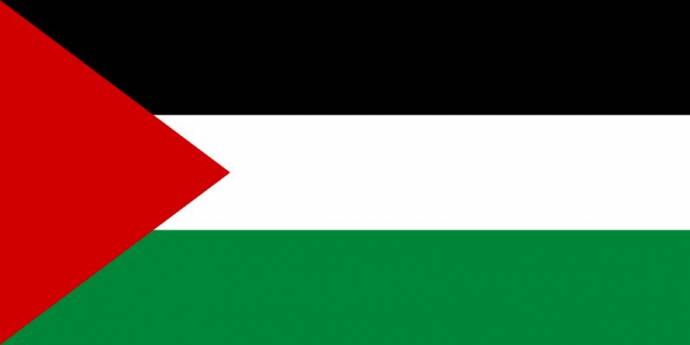STA, March 12, 2018 – Palestinian Ambassador to Slovenia Salah Abdel Shafi said international recognition of the State of Palestine would put it on equal footing in negotiations with Israel. Speaking for the STA before addressing the parliamentary Foreign Policy Committee on the issue, he likened Israel to a partner who did not want marriage or divorce.
Ambassador Shafi told the STA that he would argue before the parliamentary Foreign Policy Committee that there were two reasons for recognising the State of Palestine: a political one and a legal one.
"Politically speaking, I think that the recognition of the State of Palestine will help resume peace negotiations with Israel," he assessed.
Pointing to the on-and-off negotiations with Israel, which have been under way since 1991, Shafi believes the main issue is a lack of symmetry: "You have occupiers and the occupied. By recognising the State of Palestine, both parties get equal footing - a state is negotiating with a state."
"Recognising the state does not change the situation on the ground, it creates a new legal reality," he stressed.
Ultimately, the solution to the problem will have to be found in negotiations with Israel. "We want to sit with Israel but provided that it accepts that we are a state," Shafi noted.
The recognition of Palestine as a state would shift the negotiations in the direction of discussing the modalities and the time frame of ending the Israeli occupation.
Another problem with negotiations is that they are process- instead of goal-oriented. International, including Slovenia's, recognition of Palestine would "define the endgame".
Moreover, the UN and the EU already treat Palestine as a state; the EU determined in 2009 that the territories Israel had occupied in 1967 were the territories of the future Palestinian state, while the UN has granted Palestine the status of a non-member observer state. Palestine is also a full member of UNESCO.
"It is not just and not fair if you're speaking about two states but only recognise one. In order to be logical and fair ... the two states should be recognised."
Slovenia has endorsed all of the mentioned resolutions: "It is really just a logical step to continue this process by formally recognising the State of Palestine."
Shafi believes Slovenia could trigger a chain reaction within the EU, because other countries contemplating the recognition of Palestine "would see that even this small country called Slovenia dared do the step".
He is not disappointed that the process in Slovenia is taking so long, because Slovenia's position has always been that the recognition is only an issue of timing.
"We've been hearing there are various consequences. We understand that, I know that the Slovenian government has to take many aspects into consideration."
The process is not straightforward, because Slovenia has its own interests and relations to keep with other countries, including Israel. "We never thought that this would be an easy process."
"I know there is time pressure, because you're going to election in June. That's why we now hope that this process will be completed before the election and before parties start campaigning."
The ambassador also firmly believes that Europe should be more active politically in the Israeli-Palestinian conflict, because it is directly affected by problems in the Middle East in terms of migrations and terror threats.
According to him, Europe should become a counterbalance to the "uncontrollable US policy under the Trump administration". US President Donald Trump "is running around like an unguided missile", which is a major challenge for Europe.
It should redefine its position and policy vis-a-vis the US. This is "much bigger than Israel and Palestine alone", but resolving this issue would be a major stabilising factor in the region.
Shafi reiterated that Palestine was ready to start negotiating again, but an international effort would be required, with the US not the only broker.
"We've accepted the US as a broker for more than 20 years, and we ended up with the Americans taking sides by recognising Jerusalem [as Israeli capital], which is one of the main issues to be negotiated."
Acknowledging the importance of the US for the process and the solution, the Vienna-based ambassador nevertheless stressed that the country should sit "on the Israeli side of the table".
"If the international community does not act, and act quickly, I'm afraid the two-state solution is lost forever," Shafi also stressed.
Likening Israel to a partner who wants neither marriage nor divorce, the ambassador said that the Palestinians would be happy with a one-state solution if they had equal rights.
But, "the one-state solution is only hypothetical", the two-state solution is the "most realistic, fair and doable", but it is getting more difficult by the day.
Extremist forces are gaining power because diplomatic efforts have failed to produce results so far, which is why recognition is so important. It is important to regain the trust and confidence of Palestinians in a peaceful solution.
"We fully subscribe to what the EU wants: two states based on the borders of 1967. We don't want more, but we won't accept less than this."






